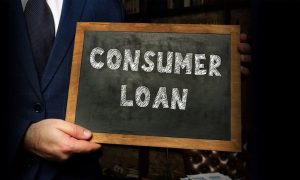Consumer debt is now a regular aspect of life for many people, whether it’s due to personal loans, credit card auto payments, or student loans. Although some debts can be manageable and even beneficial when taken care of, excessive or unmanaged debt could result in financial stress, problems, and eventually permanent consequences. It can impact the credit rating of your clients, hinder your eligibility for loans, and put an unending cost on your income. Understanding the impact of debt on your financial health overall can be the initial step towards managing it and figuring out a solution.
Assessing Your Current Debt Situation Clearly
To manage or reduce debt, you must know what you owe and to whom. This means putting all of your information on debt together, such as balances, interest rates, minimum payment amounts, and due dates. The process of organizing your debts can help you get a better picture and see where the majority of your money goes. Once you’ve identified the total amount of debt you owe and which accounts are carrying the highest rates of interest, you can begin drafting an effective repayment plan. This level of understanding can ease the anxiety that is often associated with financial anxiety.
Creating a Practical Budget That Supports Debt Reduction
A sound budget is crucial to ensure efficient debt management. Budgeting lets you keep track of your spending and income and ensure that you are prioritizing your debt-related payments while being able to cover your expenses. Begin by listing all of your income sources as well as fixed monthly expenses, such as utility bills, rent, groceries, and insurance. You can then allocate a portion of your earnings to pay off debt. The most important thing is to spend less than you earn and not accumulate debt while paying off existing debts. A budget can also help you monitor your progress and remain dedicated to your financial goals in the long run.
Focusing on High-Interest Debt First to Save Money
A proven method to reduce credit card debt for consumers is to concentrate on settling the highest-interest debt first. The high-interest debts, for example from credit cards, could rapidly increase and become expensive in the long run. By making extra payments towards these debts while also making the minimum payments on other debts, you reduce the amount of interest you pay and eliminate debt more quickly. This approach, sometimes referred to as the avalanche technique, can provide faster financial relief. The elimination of high-interest debt first opens cash that can then be utilized to deal with different accounts more effectively.
Exploring Debt Consolidation for Simpler Payments
Debt consolidation is an efficient way to handle multiple debts by condensing them into a single monthly payment. It is possible to do this via a personal loan, balance transfer credit card, or a loan for consolidation of debt. The objective is to make repayment easier, even in the event of lowering the interest rate. With fewer due dates and a predetermined amount of payments, the process of managing your finances becomes less stressful. It’s still important to ensure that you don’t accrue new debts after consolidating and ensure that your new terms will help you save money over the long term.
Negotiating with Creditors
If you’re having difficulty making payments, don’t hesitate to contact your creditors to discuss your situation. Many lenders will help you out by offering temporary relief, reduced interest rates, or even different payment options. Being open and honest about your financial problems is a sign of responsibility and can bring about better conditions. Some creditors might even agree to pay less in the event that you can make a lump-sum repayment. Although it’s not guaranteed, negotiations could be an effective tool to aid in your debt reduction strategy.
Finding Extra Income Sources to Accelerate Repayment
If your current earnings aren’t enough to help you make progress in paying off your debt, think about finding ways to earn extra money. It could be as simple as working part-time or freelancing, reselling unused products, or turning your hobby into a side business. Consistently applying a small additional monthly income to your debt can greatly assist. The more you are able to commit to repaying, the quicker you’ll start seeing results. Be sure to ensure that any additional earnings are utilized prudently and not used for unnecessary purchases.
Building Better Financial Habits for Long-Term Success
The process of managing and reducing debt isn’t merely about a quick fix; it’s about developing solid financial habits that will last. It’s about making financial goals and saving regularly, utilizing credit in a responsible way, and staying within your budget. When paying off debt, avoid the habits that caused it. Be aware of your spending habits, avoid buying on impulse, and prepare for the future costs. Making wise choices now will ensure you remain free of debt and be financially secure in the years ahead.
Conclusion
The management and reduction of consumer debt is possible with proper strategies, discipline, and a mindset. Through understanding your current situation in terms of debt and establishing a realistic budget, as well as prioritizing payments and avoiding debt that is not yet paid off, and gaining control of your finances. It will take patience and time; however, the relief that comes with debt-free living is worth the time and effort. If you decide to tackle the task on your own or with help from a professional, the most important thing is making a decision. Financial freedom begins by taking small steps; each step brings the possibility of a secure and less stressful future.
FAQs
1. Which is the most efficient method of reducing credit card debt?
The most efficient approach is to concentrate on high-interest debt first, make minimal payments on the rest, and stay clear of acquiring new debt in the process.
2. Do I have to use my saved money to cover my debt?
It’s all dependent on your circumstances. If your debt is at a high interest rate and your savings aren’t used for emergencies, it could be beneficial to draw on the savings you have to reduce the amount of debt you have.
3. Does debt consolidation hurt your credit?
It could cause a short-term drop in your score as a result of the difficult inquiry; however, in time, responsible repayments can boost your credit score.
4. What percentage of my earnings should go to debt payment?
The most common advice should be to limit your debt repayments to less than 30% of your monthly income. However, the more you are able to safely pay, the quicker you’ll be able to pay off the debt.
5. What happens if I’m unable to pay my debts on time?
If you’re unable to make a payment, you should contact your creditors to discuss your situation. You can also seek help from a nonprofit credit counseling agency to get advice.




